[ad_1]
Whether or not it’s within the kitchen or behind the bar, decreasing a venue’s environmental footprint is entrance of thoughts for a lot of hospitality staff. Whereas it’s not straightforward to know the place to start out, there’s no higher place to look than to the individuals who have constructed their companies on doing their bit for the surroundings.
Hospitality speaks to Dennis Yong from Parcs, Jo Barrett from Little Pickett and Luke Whearty from Byrdi about taking a multipronged method to sustainability from utilising meals scraps and dealing with native suppliers to getting modern in terms of repurposing substances.
Dennis Yong, Parcs

It’s not stunning Parcs is a venue that utilises leftover meals waste to create dishes — have a learn of the identify backwards. Chef Dennis Yong has lengthy been an advocate for low-waste cooking, which first stemmed from an consciousness of the surroundings and later linked up with an curiosity in preserving.
Parcs is a fermentation-centric restaurant in Melbourne that bases its menu on produce that’s thought-about ‘undesirable’. “We’re specializing in our primary aim which isn’t simply cooking meals and placing it on a plate, however utilizing scraps and surplus,” says Yong.
One in every of Parcs’ basic dishes is the umami e pepe, which includes miso sauce constructed from bread scraps rather than cheese. A more recent addition to the menu is a kangaroo dish served with a sauce constructed from by merchandise equivalent to house-made plum wine and vinegar from leftover oxidised wine.
A waste-minimising mindset applies to the drinks menu, too, with the kitchen crafting condiments from used or leftover merchandise. “With an orange, the juice is used and the peel is often chucked away,” explains Yong. “We dry the peels, mix them with chilli salt after which salt rim glasses.” Moreover, wines that may’t be served as a consequence of faults are saved and reused to create home vermouth.
However Yong admits the pursuit of sustainability could be tough. “I’m heading in the direction of low waste, nevertheless it’s a protracted course of and we’re nonetheless attempting to determine how can we do issues higher,” he says. One of many many challenges is value. “It’s actually laborious to handle your prices as generally natural stuff is dearer,” he says.
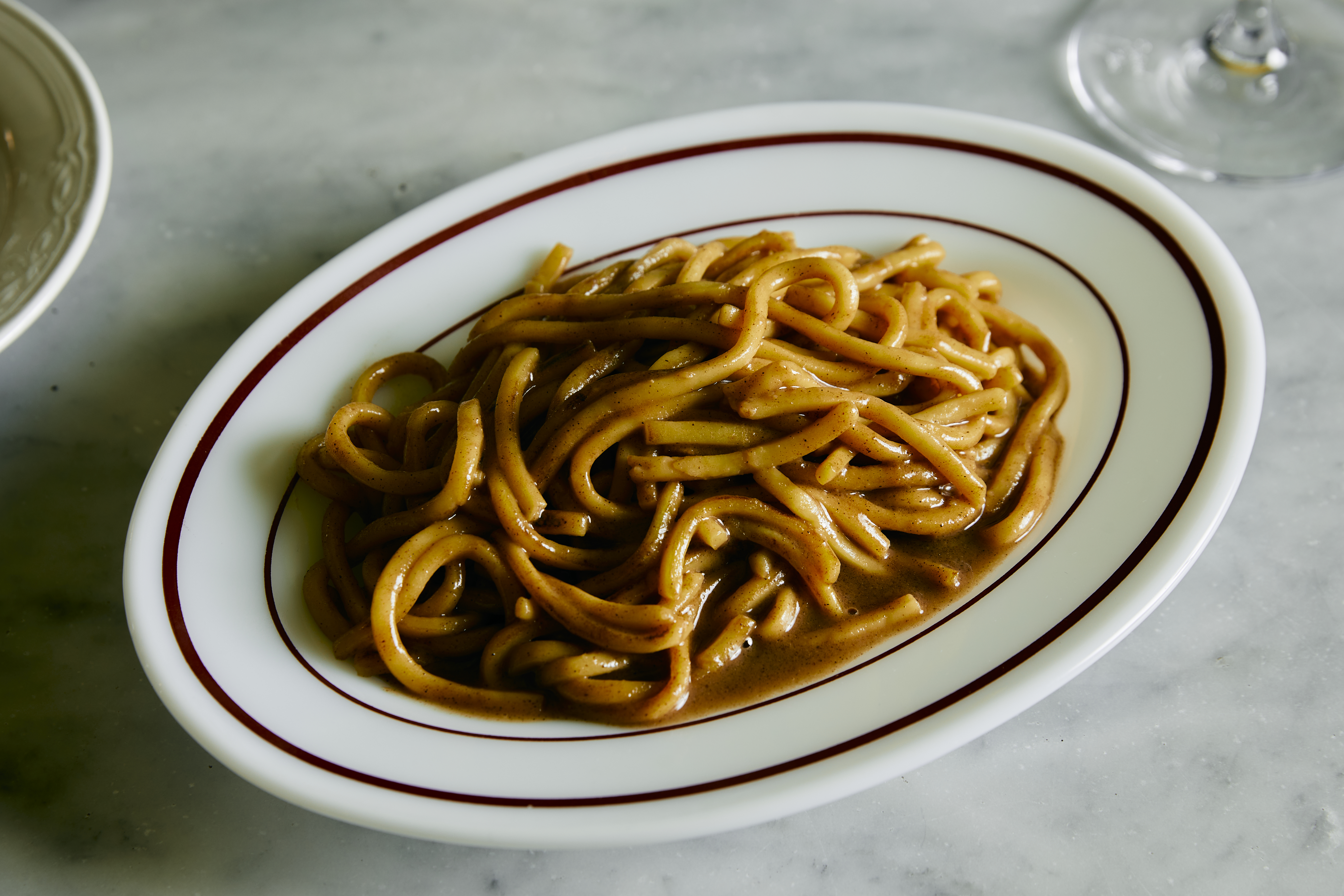
Finally, an open thoughts is important to creating a change. “No matter is given to you, you simply have to make use of it quite than considering, ‘I solely need to make this, so I’ll simply use these’,” he says. “Meals waste will not be a easy downside — it’s actually complicated.”
A practical method is especially vital in terms of the tip product and never being so centered on the pursuit of perfection. “Eating places are all the time speaking about consistency and dishes being the identical,” says Yong. “However do they actually? On the finish of the day, if the meals tastes good, what distinction does it make?”
Yong has additionally spearheaded an organization referred to as Furrimen which goals to teach and share information with the trade by means of internet hosting workshops for trade professionals. “Habits begin younger, so if they’ve a mindset of not throwing out meals and attempting to minimise waste, it’s going to alter the entire world,” he says.
“I attempt to share no matter I do know to resolve meals waste collectively; I realized these methods by myself by means of trial and error. I can’t do that alone — now we have to assist one another.”
Jo Barrett, Little Pickett
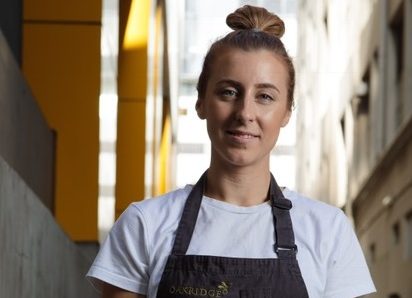
Jo Barrett’s seasonal and native method to cooking is synonymous with sustainability, and is entrance and centre at her new gig at Little Pickett in Lorne, Victoria. It’s a mindset that has remained ingrained from the beginning when the chef first started her profession in hospitality. “It was a little bit of a shock stepping right into a business kitchen and prepping massive quantities of meals,” she says. “It didn’t sit too properly with me taking a look at waste going into the bin…I knew one thing wasn’t proper.”
Barrett would go on to hone her method to cooking because of her time working with Michael James (ex-Tivoli Street Bakery) and sustainability advocate Joost Bakker. “I began to grasp it was attainable to work in a restaurant that was conscious of composting and utilizing farm-direct produce,” says the chef. “That was the purpose the place I wished it to be the main focus for me.”
Barrett is now operating Little Pickett the place seasonality, locality and group take pleasure of place within the kitchen. The restaurant sources substances from native producers in addition to from its personal property backyard. “It’s about supporting a local people and the growers within the area,” she says. “It’s additionally about closing loops so meals isn’t travelling extreme quantities and doesn’t must be packaged [for that purpose].”
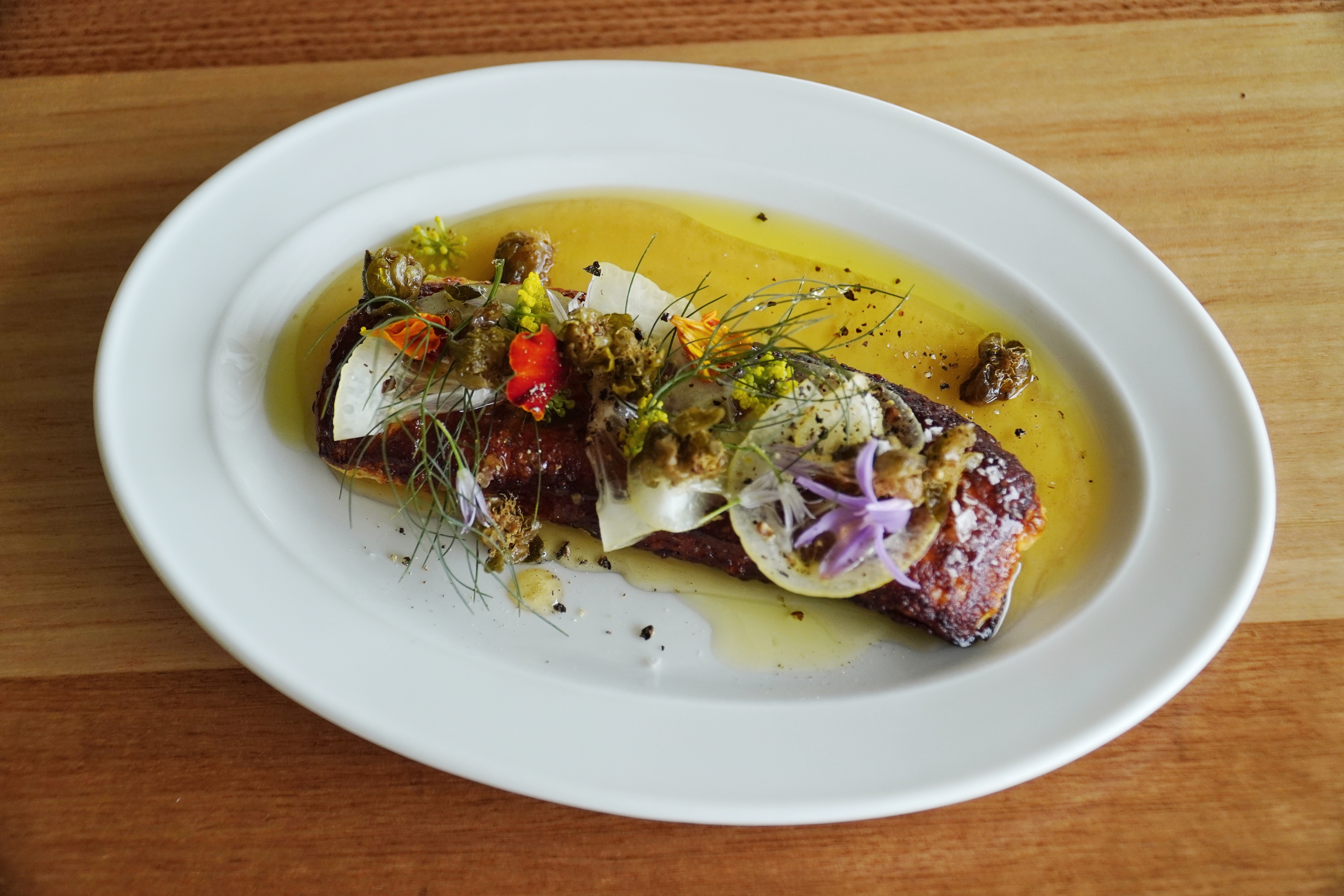
The chef works carefully with Kinsfolk Farm in Moriac, which is a small-scale natural operation. “They ship me a listing on Sunday of what they’re choosing, and we’ll then make a menu, so it’s about utilising what’s round,” says Barrett.
Little Pickett preserves produce all year long by way of pickling and fermenting to make sure ingredient longevity and engages in composting and recycling. The venue can also be outfitted with an on-site eWater system, which reduces the necessity for harsh cleansing chemical compounds.
For Barrett, going again to fundamentals performs a significant function in sustainability. “As an trade, we must be taking a look at cooking abilities and placing a deal with that,” says the chef. “On the most simple degree, [it’s about] making issues from scratch and shopping for substances that aren’t processed after which utilizing your abilities to create dishes. It’s cost-effective and higher for the planet.”
Luke Whearty, Byrdi
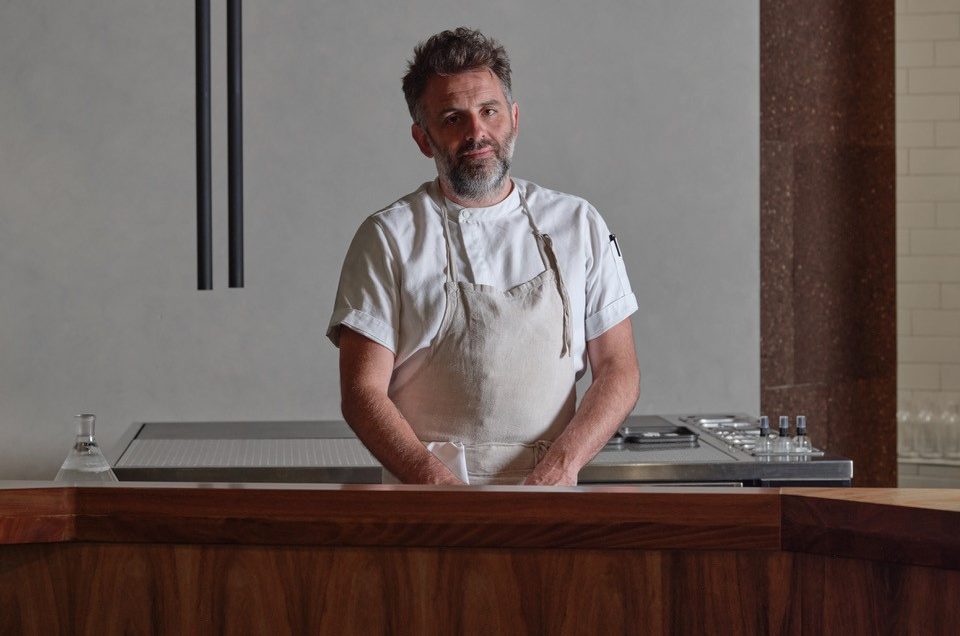
Luke Whearty is thought for creating venues that characterize their environment. The bartender opened Byrdi in Melbourne in 2019 with Aki Nishikura after coming back from Singapore, with the venue quick racking up the accolades. “The most important factor with Byrdi is we wished to get again to specializing in the issues we missed from being abroad,” says Whearty. “We need to provide a way of time and place.”
A localised focus together with the thought of saving cash impressed Whearty to start out foraging. However the cost-cutting train in the end ended up main him down the trail of sustainability. “Whereas I’d like to say it began for all these healthful causes, it started as a result of we had been attempting to minimise prices,” he says. “Then we began having a holistic view and seeing the impact it has.”
Whearty recollects the mindset of sustainability as being “contagious”, and it quickly moved to different elements of the enterprise. He thought concerning the produce he was utilizing and its by merchandise, and started to work out how he may give substances a second life. The bartender additionally turned extra conscious of waste, selecting to order in bulk to keep away from extreme packaging and minimising journey.
“I don’t realise what number of issues we’re slicing and the way a lot we’re decreasing our waste till somebody asks me,” he says. “It’s quite a bit and it’s grow to be type of our mantra now.” It extends to the drinks, too. Whearty lately created the Cobba cocktail, which was based mostly round toasted and distilled corn husks that had been supposed to be discarded. “There’s lots of waste popping out of the kitchen that may make its manner right into a drink,” he says. “It’s actually cool to speak concerning the meals and drinks collectively and match them.”
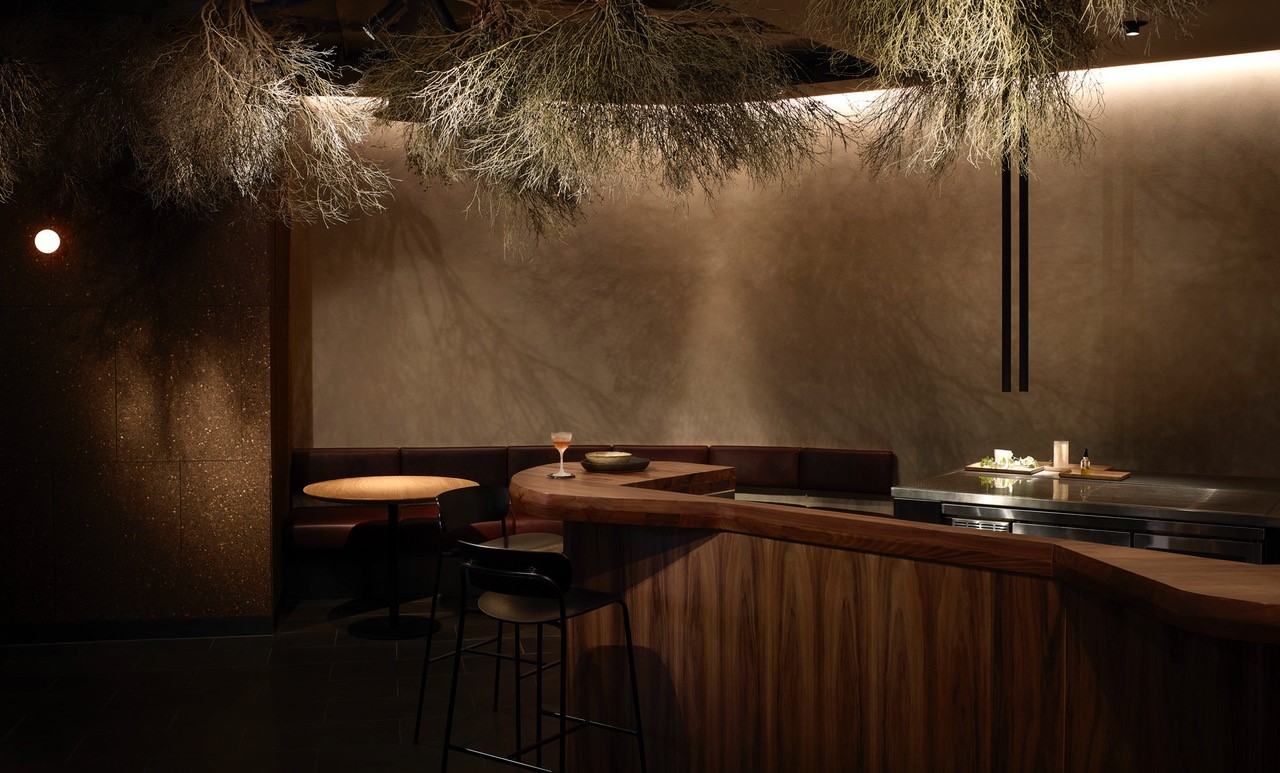
Whearty admits the time period seasonality will not be one generally used amongst bartenders, however is one thing he believes can change. “I believe bartenders could be an extension of the kitchen. It’s slowly taking place, however I believe we may see extra of that,” he says. “Quite than having an orange twist in your Negroni all-year spherical, take into consideration different garnish choices.”
Whearty suggests approaching substances in line with technique, fastidiously contemplating every step and what’s concerned. “If a kind of steps is producing one thing that’s going within the bin, suppose, ‘Why is it going within the bin?’ Even when you won’t have one other use for it, the kitchen may.”
Finally, a very powerful steps to changing into extra environmentally aware embrace going native and being versatile with what’s in season. The practices have resulted in myriad perks for Byrdi, which is a case research of how operators could make sustainability an integral focus of a enterprise mannequin.
“It’s very straightforward to fall into the lure of, ‘I received’t make a distinction by simply eliminating this from my small bar or restaurant’,” says Whearty. “However it does when the thought spreads to different avenues of your small business after which to employees, suppliers, producers and the better group — it does have a sequence response.”
Sustainability will proceed to be an vital subject throughout hospitality. Whereas the trail could appear to be a protracted one, small steps and adjustments have a big impression in the long term.
Associated Tales
[ad_2]














